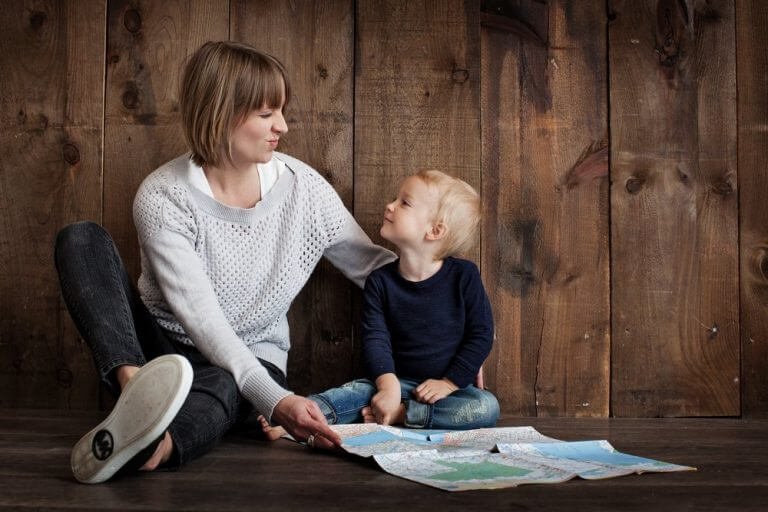Get on the floor! Pt. 2
In brief summary, playing with our kids allows us to build a strong relationship built on trust and respect that can carry through to adolescence when it is invaluable. Additionally, we are building little humans during the early years and it is important to recognize play time as an opportunity to teach many lessons that our children will carry with them. Kids learn through play and we can take advantage of that. There are several other reasons we should get on the floor with our children.
Part 1 of Get On The Floor can be found right HERE. In brief summary, playing with our kids allows us to build a strong relationship built on trust and respect that can carry through to adolescence when it is invaluable. Additionally, we are building little humans during the early years and it is important to recognize play time as an opportunity to teach many lessons that our children will carry with them. Kids learn through play and we can take advantage of that. There are several other reasons we should get on the floor with our children.
Builds Problem Solving Skills
This goes hand in hand with the learning aspect mentioned above, so I just want to go into it briefly. Kids often get frustrated when they aren’t able to do something easily on their own. Many parents don’t truly recognize this until school begins assigning homework and their kids begin to ask mom and dad to do it for them. This tendency can be reduced by helping our kids learn problem solving skills earlier on. We do this by helping them to figure out how to accomplish challenging tasks on their own, rather than simply doing it for them ourselves. This requires patience on the part of the parent because it is easy to end a tantrum by just doing it for our child. The short-term struggle for the parent will pay off long-term by helping your son or daughter learn the process of problem solving, as well as the importance of hard work. At this moment, we are trying to teach Mary how to put her own clothes on. It is so hard to watch her struggle to get the shirt over her head, and to find the holes for her arms. Every single time I am tempted to jump in and make it easier for her (and me!), and I have to remind myself of the lesson she is learning that her struggles pay off, because she is always able to do it eventually! The smile on her face when she finally succeeds is priceless.
Reduce Behavior Problems
This one gets into my work with children and their parents. Most parents bring their child to see me because of significant behavior problems that no amount of time outs or corporal punishment has seemed to address. If for no other reason, giving your children ample focused play time at an early age has been shown to reduce the development of these types of behavior problems! When kids feel important and valued, they want to keep that status and avoid disappointing their parents. When kids don’t feel important, they are more likely to act out, connect with undesirable peers, and cause many headaches for their parents. Kids enjoy attention, and acting out usually gets their parents’ attention. A hard truth is that negative attention is still attention. It takes as little as 15 minutes of attentive play each day to help build the positive relationships that can avoid these outcomes. My wife and I have both noticed a difference in how Mary treats her sister depending on whether or not we’ve had the chance to play with her. She is more rough when we’ve plopped her in front of the TV too much, or asked her to play by herself for too long. We are quickly learning the signs that we better play horses or build a castle to avoid a tantrum or aggressive behavior towards her sister.And of course the unspoken thing here is that parents can end up struggling with anxiety or depression because of the challenges posed by their children. While you may be feeling overwhelmed with trying to cram another thing into your schedule. While “forced fun” may not seem like what you’d like to be doing with that spare time. I hope these past two posts have shown a few of the numerous reasons it is worthwhile to take time out of your day and to get on the floor with your kids! It’s never too late to start this process, whether your child is 3 or 10, or whether they are acting out or not. Try and schedule yourself that time (and I literally mean put this on your calendar to begin with) starting today! Maybe you’ll come to enjoy that time as well. I have plans for future posts that will go into detail on how to play with your kids, because not all of us had the best role models when going through our own childhood. Believe me, it is something you can learn to do... and your kids will LOVE you for it!Let me know if you have any questions, or are interested in scheduling a free 30 minute consultation.
Get on the floor!
Between all the technological advances over the past 10 years, it has never been easier to keep a kid occupied (side note: I did not say it is easy, just easier!). There are smartphones, and tablets, and Netflix, and Amazon Instant Video, and an infinite number of fancy new toys that are tailored to entertain our children. Can anyone honestly say they haven’t plopped their child down in front of the TV in order to get some adulting done? Didn’t think so. The problem is that we adults have so much on our plates that we feel as if we have to rely on these babysitting tools to just keep our own heads above water. Sadly, our lives have become so busy that it actually seems like a chore to spend quality time with our children! I find myself needing to take a step back every so often to remember just why it is so important that we carve out time to actually sit ON THE FLOOR and play with our two little girls.
Between all the technological advances over the past 10 years, it has never been easier to keep a kid occupied (side note: I did not say it is easy, just easier!). There are smartphones, and tablets, and Netflix, and Amazon Instant Video, and an infinite number of fancy new toys that are tailored to entertain our children. Can anyone honestly say they haven’t plopped their child down in front of the TV in order to get some adulting done? Didn’t think so. The problem is that we adults have so much on our plates that we feel as if we have to rely on these babysitting tools to just keep our own heads above water. Sadly, our lives have become so busy that it actually seems like a chore to spend quality time with our children! I find myself needing to take a step back every so often to remember just why it is so important that we carve out time to actually sit ON THE FLOOR and play with our two little girls.
Relationship
Probably the most important and yet little discussed aspect of child rearing is simply that time together playing builds a relationship between us and our children. Kids are often either unable or unwilling to just tell us about their day. While your spouse might use words to tell you about the funny thing that happened at work, our kids use play to express what’s going on in their lives. If you really pay attention, you’ll be amazed at what you learn from being actively involved in your kids’ play session. And while they won’t tell you, “daddy, thank you for playing with me,” trust me when I say they notice and appreciate that time spent together. Time on the floor with your child lets them know that they are important to you, and that you are willing to meet them at their level. Think that feeling might pay off when they are older and have something serious to discuss? You bet it will! My daughter, Mary, is nothing if not persistent with her, “Daddy, come here!” requests. There are many times when I would like to ignore them in favor of work or relaxing on the couch, and plenty of times I do find ways to occupy her while continuing what I’m doing. However, I try to make a point of at least once a day not brushing her off, but letting her lead me into her world. Whether it’s making pretend cupcakes, putting her into princess dresses, or having a dance party, I find the time together is always rewarding. Just the other day I took Mary to the park for the first time in a while and discovered she is now able to climb the rock wall. She loved showing off all the new skills she’s developed (little monkey), and I loved seeing them.
Learning
This is one area where our public school system doesn’t do as well of a job as it could. Young children are not built to sit in a chair for hours listening to someone lecture them on whatever topic they are learning that day. Children learn by doing, by playing, by experimenting, by getting their hands dirty (and boy do they manage to get dirty). If you have ambitions for your child to excel academically, playing with them at an early age provides ample opportunity to teach in a way they can understand. Every play session doesn’t need to have a specific learning goal, but chances will constantly arise to teach colors, letters, spelling, increase vocabulary, as well as develop an understanding of concepts like sharing, morals, religious beliefs, handling frustration effectively etc. Learning does not have to be boring, and in fact, being actively engaged in a play activity makes children more receptive to your lessons! Children are little sponges that soak up far more than we adults know. We usually take notice when they start repeating phrases we say without thinking, “oh my goodness!,” for our daughter… it may be cursing in some families (whoops). An example of finding a learning opportunity is on one of our family walks, we taught Mary that the scientific name for thunderhead clouds is “cumulonimbus.” That’s right, we are turning our 2 year old into a nerd already, but it is adorable to hear her say it! The point being that childhood is intended for learning how to be a human, and so it makes sense to take advantage and teach the lessons WE want them to learn through play, rather than leave it up to TV/society/friends to teach things we may not agree with.
BUILDS PROBLEM SOLVING SKILLS
This goes hand in hand with the learning aspect mentioned above, so I just want to go into it briefly. Kids often get frustrated when they aren’t able to do something easily on their own. Many parents don’t truly recognize this until school begins assigning homework and their kids begin to ask mom and dad to do it for them. This tendency can be reduced by helping our kids learn problem solving skills earlier on. We do this by helping them to figure out how to accomplish challenging tasks on their own, rather than simply doing it for them ourselves. This requires patience on the part of the parent because it is easy to end a tantrum by just doing it for our child. The short-term struggle for the parent will pay off long-term by helping your son or daughter learn the process of problem solving, as well as the importance of hard work. At this moment, we are trying to teach Mary how to put her own clothes on. It is so hard to watch her struggle to get the shirt over her head, and to find the holes for her arms. Every single time I am tempted to jump in and make it easier for her (and me!), and I have to remind myself of the lesson she is learning that her struggles pay off, because she is always able to do it eventually! The smile on her face when she finally succeeds is priceless.
REDUCES BEHAVIOR PROBLEMS
This one gets into my work with children and their parents. Most parents bring their child to see me because of significant behavior problems that no amount of time outs or corporal punishment has seemed to address. If for no other reason, giving your children ample focused play time at an early age has been shown to reduce the development of these types of behavior problems! When kids feel important and valued, they want to keep that status and avoid disappointing their parents. When kids don’t feel important, they are more likely to act out, connect with undesirable peers, and cause many headaches for their parents. Kids enjoy attention, and acting out usually gets their parents’ attention. A hard truth is that negative attention is still attention. It takes as little as 15 minutes of attentive play each day to help build the positive relationships that can avoid these outcomes. My wife and I have both noticed a difference in how Mary treats her sister depending on whether or not we’ve had the chance to play with her. She is more rough when we’ve plopped her in front of the TV too much, or asked her to play by herself for too long. We are quickly learning the signs that we better play horses or build a castle to avoid a tantrum or aggressive behavior towards her sister.
Make your life a little easier
And of course the unspoken thing here is that parents can end up struggling with anxiety or depression because of the challenges posed by their children. When thinking about this, you may be feeling overwhelmed with trying to cram another thing into your schedule, and “forced fun” may not seem like what you’d like to be doing with that spare time. Though I hope this blog shows a few of the numerous reasons that it is worthwhile to take time out of your day and to get on the floor with your kids! It’s never too late to start this process, whether your child is 3 or 10, or whether they are acting out or not. Try and schedule yourself that time (and I literally mean put this on your calendar to begin with) starting today! Maybe you’ll come to enjoy that time as well. I have plans for future posts that will go into detail on how to play with your kids, because not all of us had the best role models when going through our own childhood. Believe me, it is something you can learn to do... and your kids will LOVE you for it!If you'd like to discuss how you can improve your relationship or help address your child's behavior issues, schedule a free 30 minute consultation today!
Why online therapy?
Online therapy. E-therapy. Telemental health. However you describe it, it’s not the first thing that jumps to mind when most people think of therapy. They might know of Freud, think of laying down on a couch, or maybe they picture the typical cozy office space that most therapists utilize. With the prevalence of digital devices over the last 5 to 10 years, it may come as no surprise that some pioneering therapists decided to ask, “can I use this technology to help patients?” Researchers were up to the task of investigating that question, and they have primarily found it to be equally effective to its face to face counterpart for many mental health diagnoses. So what are some reasons someone would choose to use online therapy instead of visiting an office?
Online therapy. E-therapy. Telemental health. However you describe it, it’s not the first thing that jumps to mind when most people think of therapy.They might know of Freud, think of laying down on a couch, or maybe they picture the typical cozy office space that most therapists utilize.With the prevalence of digital devices over the last 5 to 10 years, it may come as no surprise that some pioneering therapists decided to ask, “can I use this technology to help patients?”Researchers were up to the task of investigating that question, and they have primarily found it to be equally effective to its face to face counterpart for many mental health diagnoses.So what are some reasons someone would choose to use online therapy instead of visiting an office?
Convenience
We all lead busy lives, and many would say they spend too much time in the car.After having 2+ hour commutes when I lived outside of Washington, DC, less time in the car was certainly a priority for me when we moved to Florida.After commuting to work, running errands all day, or carting the kids to soccer practice, who wants to spend more time in the car to visit their therapist?Technology allows sessions to happen in the comfort of your own home, in your car (NOT while driving!), or even on your lunch break, It’s much easier to squeeze 45 minutes into your schedule without needing to account for the drive time.
Access
For those who live in heavily populated areas, like Pinellas County, this may not be an issue as there are many therapists to choose from.Unfortunately, those people who live further out are forced to choose either a long drive to meet with someone, or possibly just forgoing treatment altogether for lack of options.Online therapy opens up access to therapists from anywhere across the state.
Confidentiality
The things patients choose to share in therapy are intimate and deserve to be kept absolutely secret.With in-person treatment, patients may have concerns about running into someone they know in the waiting room, or what to say if they meet their therapist out in public.With online treatment, there is no waiting room, and you can choose a therapist hundreds of miles away if you never want to see their face in public.When choosing an online therapist, make sure they are using a HIPAA compliant service (not Skype), to ensure maximum confidentiality on the technology end.
Different from Face to Face
I was skeptical at first because there is so much that comes from being in the room with someone.When I meet with a patient in my physical office, I can see their nonverbal reaction to our discussion, or I can provide a comforting touch when needed.While some of this is lost online, I’ve found that it’s absolutely possible to develop a strong therapeutic relationship, and there are even some benefits.Being “with” a patient in their house can provide them a sense of comfort they never would find at my office.It also allows for treatment to happen in their “real world,” so the things we discuss in therapy can carry over more easily into their daily life.Additionally, instead of coming up with a helpful task to do after session,I can be there while a patient walks through the process of doing the task, helping them address any obstacles that may arise.The more I’ve learned about online therapy, the more excited I’ve become to add it to my own practice.If you think it sounds intriguing or you have questions you’d like to discuss, please feel free to send me an e-mail (kevin@hydepsychology.com) or give me a call (727-498-1809). And if you’re ready to take the plunge, set up an appointment for a free 30 minute consultation. I look forward to meeting you!
What is the Difference Between a Psychologist and a Psychiatrist
I am often asked whether I am a psychologist or psychiatrist. Even after six years of graduate school and becoming a licensed psychologist, there are family members who ask me to clarify the distinction. This is a good example of how most people only have a vague understanding of the mental health field, and that we have a long way to go in our efforts to increase education and reduce stigma. So, what IS the difference between a psychologist and a psychiatrist?
I am often asked whether I am a psychologist or psychiatrist. Even after six years of graduate school and becoming a licensed psychologist, there are family members who ask me to clarify the distinction. This is a good example of how most people only have a vague understanding of the mental health field, and that we have a long way to go in our efforts to increase education and reduce stigma. So, what IS the difference between a psychologist and a psychiatrist?
Psychologist
Let’s start with me. As already mentioned, I am a psychologist. What this means is that I went through four years of intense classroom instruction on mental disorders (e.g., depression, anxiety, schizophrenia, ADHD, autism etc.), various models for treating mental health issues, biological composition of the brain, psychological testing, and standards for ethical practice. While taking classes, future psychologists are also working with patients while under supervision to learn and refine therapy and testing skills. After those four years, the students must go through a rigorous match process to be selected for their one-year internship. Internship often requires moving across the country, and involves a regular 40 hour week working directly with patients in therapy and testing, along with continued supervision. Not to mention somewhere along the way, they need to squeeze in completing a dissertation! After internship is complete, only then will the student be considered a doctor. However, they are still not able to use the term “psychologist” until they complete another supervised year of practice (post-doctoral residency), and pass both a national licensure examination and a state specific test of laws and regulations. Once licensed, psychologists are able to practice independently and provide therapy, testing, and consultation services.
Psychiatrist
Psychiatry is another specialty within the mental health field. It is very common for psychologists and psychiatrists to collaborate on patient care, to ensure the best outcomes for the patient. To become a psychiatrist, one must first complete everything that is involved with medical school. They begin with learning the general medical knowledge that every medical doctor must know to competently treat patients. They learn anatomy and physiology of the entire body, about the many illnesses that affect us (e.g., cancer, sprains, influenza, seizures etc.), and the proper treatments for those disorders. Somewhere along the way, medical students must decide whether they want to pursue a specialty practice, such as psychiatry or radiology, or if they want to remain a generalist who can serve as a primary care physician. Those who elect psychiatry as their specialty begin to focus on patients with mental health disorders and providing the best research supported medical treatment. In many cases, this involves prescribing medication (e.g., Lexapro for depression or anxiety, Seroquel for schizophrenia, Depakote for bipolar disorder etc.). While some psychiatrists also provide talk therapy, most will tell you that another mental health professional can provide more optimal treatment in that arena.In very basic terms, psychologist = talking about making behavioral changes to improve mental health; psychiatrist = medication to improve mental health. While some feel there is a rivalry between the professions, I have nothing but the utmost respect for every psychiatrist I have encountered. For most mental health diagnoses, research indicates that a combination of behavioral strategies and medication produce the best outcomes. Nobody gains anything from unwarranted turf wars, least of all the people who need us most, our patients. I am more than happy to speak with your primary care provider or psychiatrist if you feel it would improve your care.For a free 30 minute consultation, schedule today!For additional information:American Psychological AssociationAmerican Psychiatric Association















